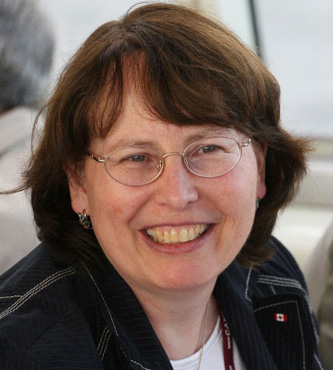The Path to a Safer Tomorrow: Replacing Everyday Chemicals with Safer Alternatives
Dr. Barbara F. Hales
Dr. Barbara Hales is leading a team of researchers, primarily from McGill University, who are evaluating the health impact of chemicals that leach out from cosmetics, plastics, electronics and foam to enter our food and drinking water; the ultimate goal is to prevent exposures and identify safe replacements. This research project involves an international multidisciplinary team of experts from three universities [McGill University, Université INRS (Institut national de la recherche scientifique), and University of Pretoria], the Research Institute of the McGill University Health Centre, government agencies, and partnering policy-makers.

Dr. Barbara F. Hales, James McGill Professor of Pharmacology and Therapeutics at McGill University
Photo courtesy of McGill University
Chemicals are part of our daily lives. They leach out of consumer products, such as cars, toys, clothes, furniture foam, draperies, cosmetics, TVs, and computers. They are used to retard the spread of flames (polybrominated diphenyl ethers), to make plastics malleable (phthalates), and to package our foods (bisphenol A). We detect these chemicals in house dust, in a wide range of the foods in our local grocery stores, and in drinking water. Even when found in small concentrations, some of these chemicals exert important biological effects by disrupting the body’s own hormones, acting as endocrine-disrupting compounds (EDCs).
Many proven EDCs, such as flame retardants, plasticizers and food packaging materials, have been subjected to regulations to protect consumers. An unforeseen consequence of this has been the emergence of alternative chemicals that pose their own set of risks. There is often little information on the extent to which we are exposed to these replacements or on their health impacts. Dr. Barbara Hales and her team are investigating the extent to which our food, drinking water and breast milk contain the chemicals that have emerged as replacements for flame retardants, phthalates and bisphenol A. Next, they will determine if these new alternatives are safer than the substances that they have replaced and if any adverse effects can be prevented by altering food preparation procedures and water purification strategies.
The ultimate goal that is being pursued by Dr. Hales’ team is to learn more about the impact of substance exposure on our health and to create new legal standards and policies that protect the public from the adverse effects of environmental chemicals.
- Date modified: